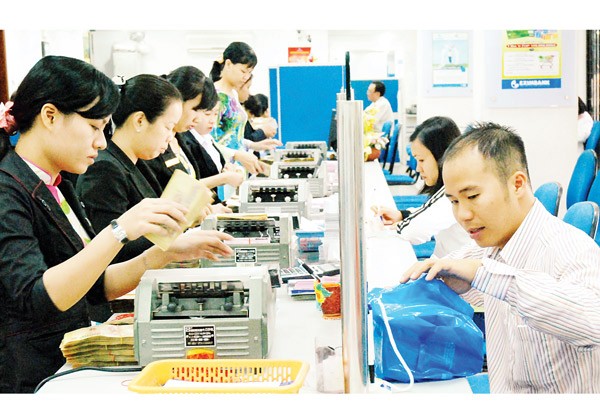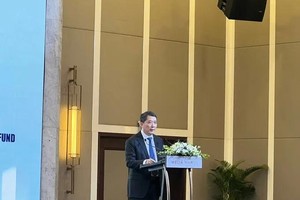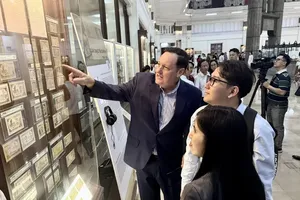Credit growth was fast last year because of improved capital absorption of the economy, however the banking system should watch out a back increase in deep debts, said deputy head of the National Financial Supervisory Commission (NFSC) Dr. Truong Van Phuoc at a workshop on the overview of financial market last year in Hanoi.

Reports by the commission show that despite negative impacts from the world’s economy last year, Vietnam was still one of economies getting the highest growth rate with 6.68 percent.
However the economy had yet to have driving forces for sustainable development and relied on foreign direct investment sector, public debt continued increasing quickly and state budget was overspending posing many challenges for macroeconomic stability.
Dr. Truong Van Phuoc said that credit quality was improved significantly in 2015. Overdue debt ratio reduced to 4.4 percent from 5.3 percent in 2014, equivalent to VND179,501 billion (US$8 billion).
Bad debt ratio was 2.9 percent equivalent to VND119,660 billion ($4.98 billion).
The total deep debts sold to the Vietnam Asset Management Company (VAMC) was VND243 trillion ($10.84 billion), higher than VND133 trillion ($5.93 trillion) in the previous year.
Mr. Phuoc urged VAMC to speed up handling the purchased bad debts in order not to put pressure on the banking system.
Another problem concerning experts at the event was the possibility of loan interest rate increase in 2016.
Dr. Truong Van Phuoc said that problems from the rapid increase in medium and long term loans had put pressure on interest rate. Medium and long term credit hiked 31.1 percent in 2015 partly because of the real estate market and debt restructuring for businesses.
Reward interest rate has continuously surged for the last two months as banks have intensified capital mobilization to wait in front for the revised Circular 36 by the State Bank of Vietnam, which reduces the ratio of short term capital used for medium and long term loans from 60 percent to 40 percent.
Talking to the press recently, Mr. Bui Quoc Dung, head of the bank's Monetary Policies Department admitted a large pressure on interest rate.
According to Mr. Dung, the forecast inflation rate of around 4-5 percent which was 0.6 percent last year has indirectly levied pressure on deposit interest rate.
In addition, economic growth rate is targeted at 6.7 percent this year, higher than 6.68 percent last year and the average rate of 5.88 percent for the phase 2011-2015. These shows that credit demand will continue rising this year.
Moreover the interest rate of Government bonds for five year term has drastically jumped from 5.4 percent to 7 percent in 2015. It is expected that this year the capital mobilization demand from this source will be larger than last year creating heavy pressure on medium and long term interest rates.
On the sideline of the seminar, economic expert Dr. Le Xuan Nghia said that credit tightening would push interest rate up. If it moves up an extra of 1-2 percent, businesses would ‘run away’.
Expecting that interest rate would be steady in a relatively long time, many enterprises have got bank loans for investment. So if the rate moves up, it will significantly affect their production and trading.
















)

)





